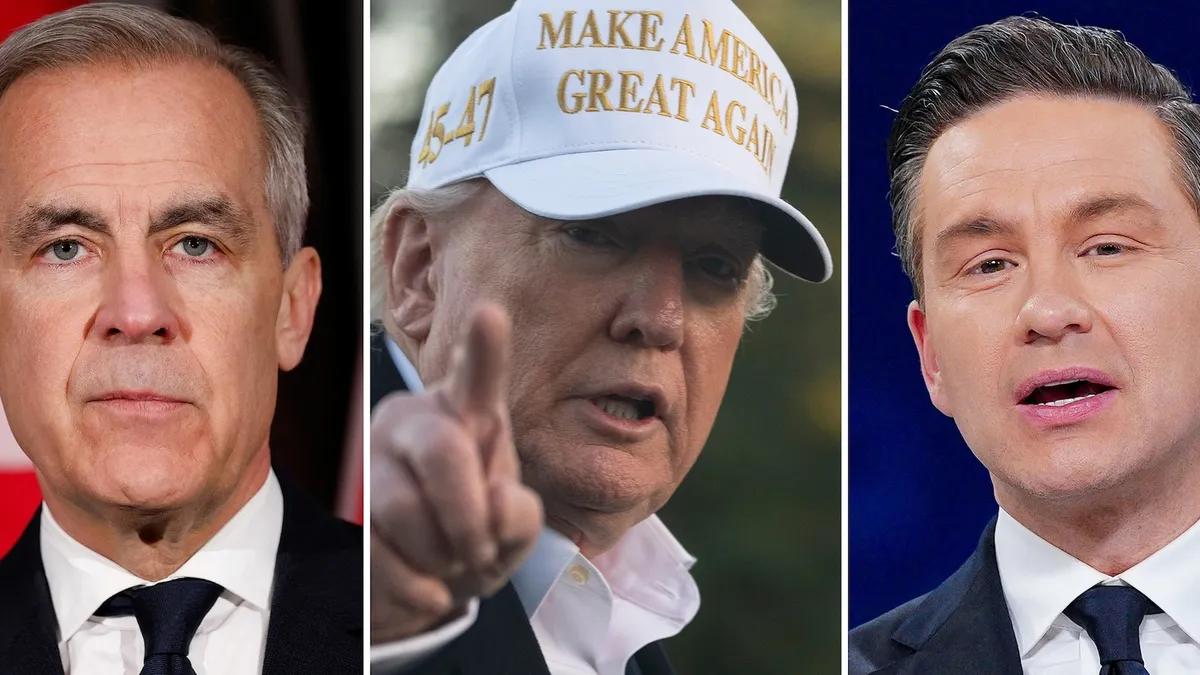
On the day of Canada's election, President Donald Trump made a controversial social media post suggesting that Canadians should consider voting for him, positing that this could lead to Canada becoming the 51st state of the United States. In his message, Trump claimed that electing him would provide Canadians with numerous benefits, including the potential to cut taxes in half and significantly enhance military power without additional costs. He stated, "Elect the man who has the strength and wisdom to cut your taxes in half, increase your military power, for free, to the highest level in the World." Trump further emphasized that Canadian businesses—such as those in the automotive, steel, aluminum, lumber, and energy sectors—could QUADRUPLE in size if Canada were to join the United States, enjoying "ZERO TARIFFS OR TAXES."
In his post, Trump also expressed frustration at the financial support the U.S. provides to Canada, claiming, "America can no longer subsidize Canada with the Hundreds of Billions of Dollars a year that we have been spending in the past. It makes no sense unless Canada is a State!" Despite Trump's bold assertions, it is important to note that Canadians cannot cast a vote for him, as he is not listed as a candidate on any ballot in the election.
Canada boasts a diverse political landscape, with 16 registered political parties. The two most dominant parties are the Liberal Party and the Conservative Party, with other notable parties including the Green Party, the Libertarian Party, the United Party, and the Canadian Future Party. Following Trump's remarks, Conservative Party leader Pierre Poilievre responded strongly, asserting that Trump should refrain from interfering in Canadian elections. Poilievre stated, "The only people who will decide the future of Canada are Canadians at the ballot box. Canada will always be proud, sovereign, and independent, and we will NEVER be the 51st state." He emphasized that the current election provides Canadians with the opportunity to vote for change and strengthen their nation.
In a timely response, Canadian Prime Minister and leader of the Liberal Party, Mark Carney, shared a video on social media platform X, reinforcing the sentiment that "This is Canada -- and we decide what happens here." Current polling data indicates that the Liberal Party is leading, a significant shift from just a few months ago when the Conservatives held a 25-point advantage.
Canada operates under a parliamentary system, meaning that if the Liberals secure a majority of seats or form a minority government with support from other parties, Carney will continue in his role as prime minister. As the election day unfolds, nearly all polling stations are expected to close by 9:30 p.m. ET, marking a critical moment in Canada’s democratic process.